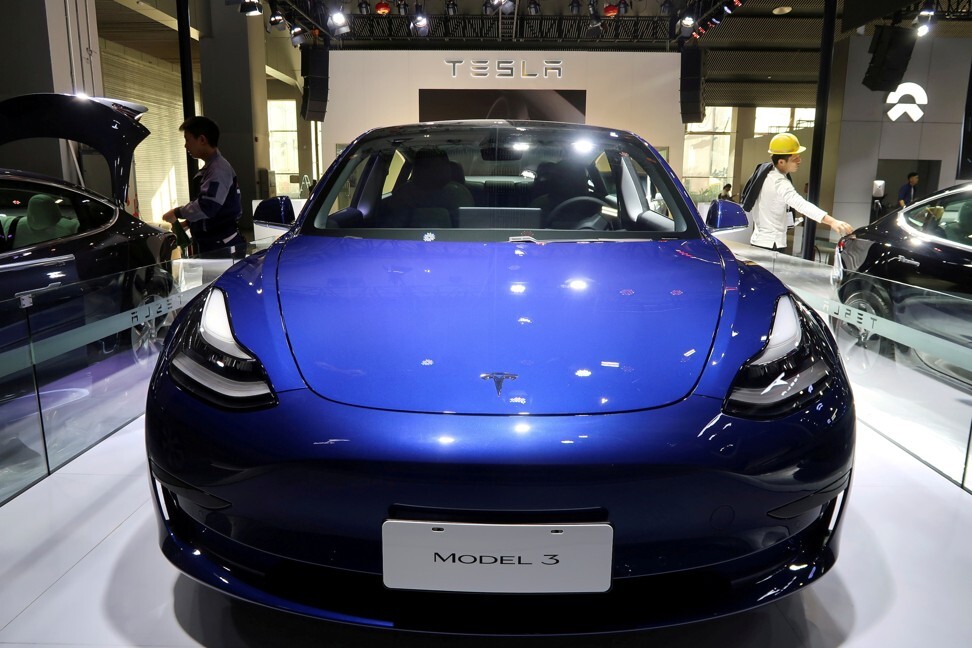
China’s EV war: Tesla’s May deliveries of electric cars rise 30 per cent as delivery backlogs shield it from home-grown rivals
- Tesla delivered 33,463 vehicles made in Shanghai last month, according to data provided by the China Passenger Car Association
- Fans who flocked to Tesla’s showrooms following the surprise launch of its Model Y on January 1 were told to wait until the second quarter for delivery
Tesla’s delivery of electric vehicles (EVs) rose by nearly 30 per cent in May, as backlogs due to strong bookings in the first quarter buffered the carmaker’s performance in the world’s largest vehicle market from scores of home-grown competitors snapping at its heels.
The California-based carmaker delivered 33,463 of its Model 3 sedans and Model Y SUVs made in its Shanghai Gigafactory last month, compared with 25,843 units sold in April, according to data provided by the China Passenger Car Association (CPCA), the industry body that compiles monthly sales statistics. The data did not break out Tesla’s sales by models.
“Tesla received a huge number of orders in the first two months of this year, which had yet to be [fully] executed,” said Qian Kang, who owns a car components maker in Zhejiang province near Shanghai. “A smaller volume of orders last month does not necessarily mean that its deliveries would have dropped sharply.”

“Most buyers of smart EVs in China are still taking a wait-and-see attitude, though Tesla has suffered a big setback in the market,” said Eric Han, a senior manager with Shanghai-based business advisory firm Suolei. “At least Tesla’s main Chinese competitors have not reaped huge benefits.”

“Tesla upgraded its production line in Shanghai in April and thus the sales showed some slowdown, followed by a rebound in May,” said David Zhang, an analyst with the research centre for automobile industry innovation at the North China University of Technology. “We will see a further growth in the coming months.”
Tesla had a run-in with Chinese customers and consumer affairs officials in the past two months over the quality and safety of its cars. The carmaker had to recall more than 700 imported Model 3s in China to fix a number of defaults, from faulty seat belts to loose bolts, according to the State Administration for Market Regulations last week. Last October, Tesla took back 30,000 of its US-made Model S and Model X to repair faulty suspensions.
A Tesla vehicle was involved in an accident in Taizhou city that resulted in the death of a policeman on May 17. The full responsibility in the mishap laid with the driver, and had nothing to do with the electric car as the vehicle tested normal during inspections by third-party professionals, the Beijing Daily newspaper reported, citing the local police bureau.
“China is geared to move forward on its new infrastructure development,” said Teng Yong, a partner at Oliver Wyman. “More regulations on autonomous driving and data will be rolled out with a purpose to help develop the sector, rather than to target or limit one particular company.”


